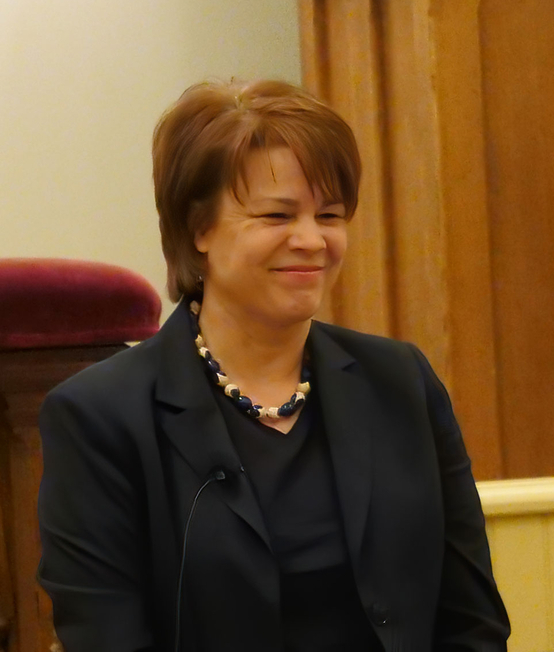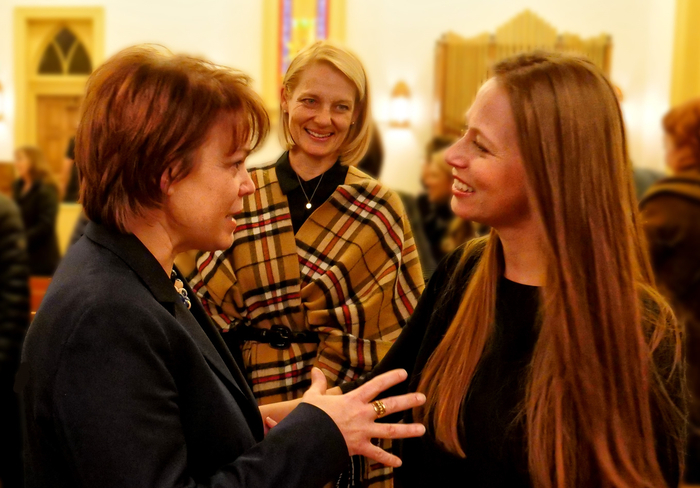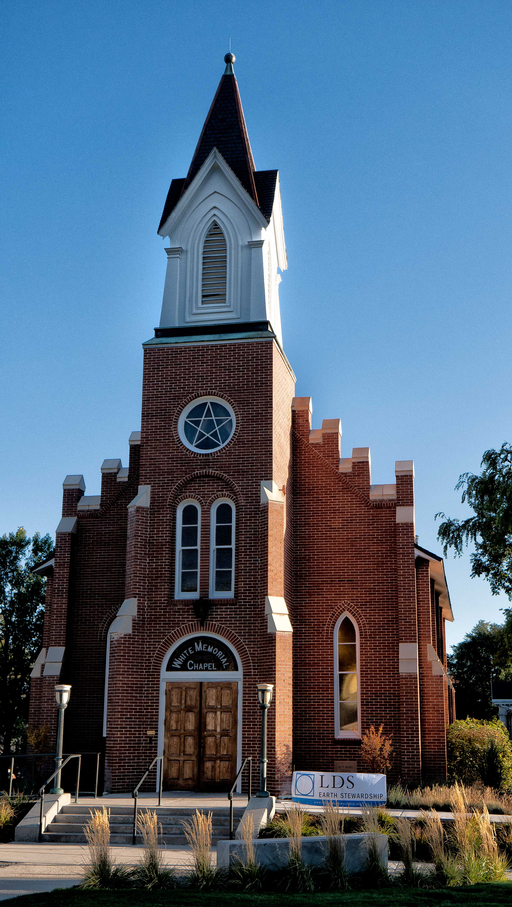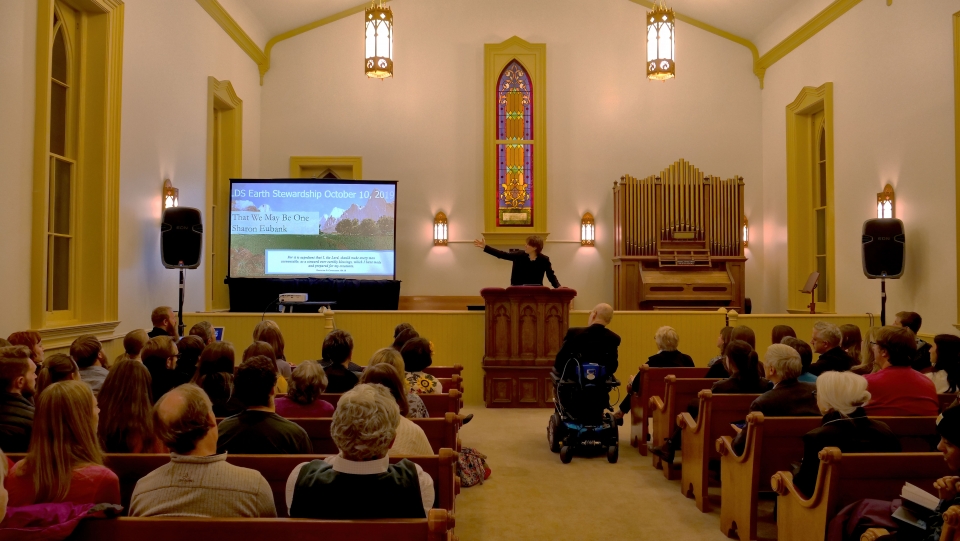The tone for our Fall Forum was set by the historic and venerable location of White Memorial Chapel. Every pew and seat were filled by eager listeners, ready to hear what Sister Sharon Eubank came to share. After introducing our Board of Directors, presenting the Steward of the Year award, sharing highlights from the past year, and announcing the Duty, Love and Stewardship campaign, the majority of the evening was left to our special guest.
 Sister Eubank opened graciously, explaining that she hadn't written down her thoughts because she wanted to have a conversation. Her first topic was how humanitarian work and environmental stewardship intersect: the migration of displaced people. Environmental degradation is one of the top three reasons that people leave their home. Long-term environmental changes such as saltwater intrusion from rising sea levels and increasingly extreme weather patterns like droughts and hurricanes force desperate departures that are perilous and risky. Sis. Eubank pointed out that the scale of the migration happening right now hasn't been seen since World War II. Naturally, our response needs to cover the immediate needs of the displaced, but it's equally important to address the root causes of migration—which include environmental concerns.
Sister Eubank opened graciously, explaining that she hadn't written down her thoughts because she wanted to have a conversation. Her first topic was how humanitarian work and environmental stewardship intersect: the migration of displaced people. Environmental degradation is one of the top three reasons that people leave their home. Long-term environmental changes such as saltwater intrusion from rising sea levels and increasingly extreme weather patterns like droughts and hurricanes force desperate departures that are perilous and risky. Sis. Eubank pointed out that the scale of the migration happening right now hasn't been seen since World War II. Naturally, our response needs to cover the immediate needs of the displaced, but it's equally important to address the root causes of migration—which include environmental concerns.
The second topic centered around Zion. Sis. Eubank highlighted the strange choice that Joseph Smith made after establishing the Church; of all the things he could have put his time and effort into, Joseph translated the Old Testament. She proposed that it indicates how important the experiences of Moses and Enoch are. After reading some of the verses in Moses 7, she asked us to seriously and thoughtfully consider what preparing the earth to be Zion—of one heart and one mind, dwelling in righteousness with no poor among us—has to do with stewardship of the earth. "Are they not linked so inextricably that we can't do one without caring for the other?" she asked.
For her testimony, Sis. Eubank closed by leading the attendees in singing Guide Us, O Thou Great Jehovah. The Spirit swelled with the sound of beautiful voices. After finishing, she added, "I pray that Jehovah . . . will guide me so that little tiny drops of action can somehow flow together . . . and finally create Zion." She acclaimed the work of LDS Earth Stewardship by lauding our Resource Library, appreciating how we stay true to Church teachings, and explaining that her attendance at this forum was approved by Church leadership. "There is no question: we are stewards of the earth and we care for the earth," she affirmed, "It is a godly and holy work."
With hope of continuing the conversation at future events, she asked three questions that she wants us to help her answer. We list them below, with some context from the evening’s discussion, for you to ponder:
1. When we waste what others desperately need, what physically happens to unity and our hearts?
Reflecting on the hand-carved pews we sat upon in the chapel, Sis. Eubank brought attention to how it feels when we're familiar with the process of how something is made. She expressed the weighty seriousness of wastefulness by tracing the "value chain" of resources required to get a package of raspberries into her fridge. We are indefensibly culpable when we waste something that could have benefitted someone else; if we all reduced our waste, we could fulfill many of the needs of our poor without even sacrificing. When we look at the processes that God designed in the natural world, there is no waste; that is a divine pattern.
2. Why do we feel God in His creations? What do others feel in our own creations?
In discussing Zion, Sis. Eubank shared a handful of quotes about individuals' experiences in Zion National Park. They all touched on the physical reactions and deep feelings that come from being in nature. One possible explanation for this phenomenon Sis. Eubank suggested is that the obedience of the natural world to its Creator has an uplifting influence. In her words, "It makes us better people; it raises and lifts our spirits so that we treat ourselves and our fellow beings differently."
3. What would move our hearts to swell "as wide as eternity" (Moses 7:41)?
Noting that the way we often talk about environmental issues is polarizing, Sis. Eubank identified the need for a new framing that can open the conversation up again. However, she warned that the position of a ‘moral high horse’ is unlikely to be constructive. Instead she encouraged creative persuasions that appeal to others’ practicality and humor. Because “we are the Church,” we don’t need to wait for Church leaders to give direction before enacting eco-friendly practices in our wards and stakes.
The transcript was first shared with the members of LDSES via the newsletter,
but is now freely available to read here.



